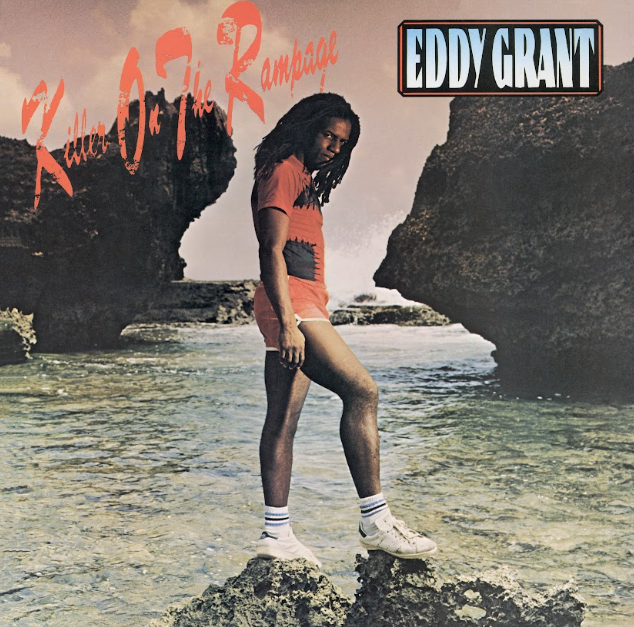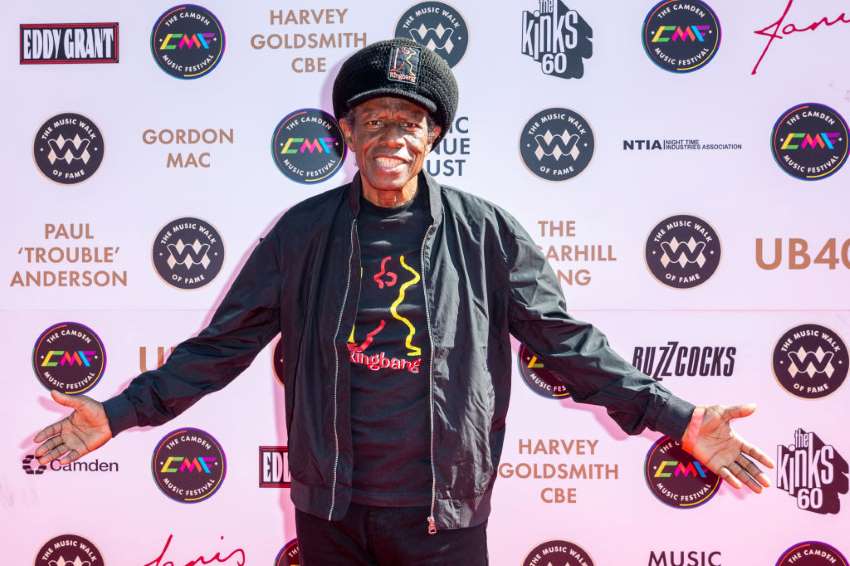BORN IN Plaisance, Guyana, Eddy Grant moved to London in 1960 at the age of 12. But it was when he left the UK some years later that he encountered a strange set of circumstances that led to his music being used and reused decades later.
The legendary artist, activist, bandleader and label owner, celebrates his 76th birthday this month and a nearly 60 year career with the release of his most seminal and globally acclaimed multi-platinum selling album ‘Killer On The Rampage’.
The entire album, with a rare alternative cover artwork, is now officially available for the first time ever to Grants fans and a new generation of listeners around the world on streaming and digital services, a staggering 42 years on from its original release.
Grant often hailed as a pioneer of British Black music, released a staggering 15 albums and achieved five UK Top 10 singles, playing most of the instruments on his records.
What sets him apart has been his uncompromising and unapologetic artistry.
Physical copies of his music have become rarities, with cover versions and unofficial bootlegs rife across the internet.
Until now, none of Grant’s massive catalogue has been available digitally on streaming services.

The digital release of ‘Killer On The Rampage’, his sixth and most commercially successful album, represents a milestone in an epic career.
When it was released at the end of 1982, ‘Killer On The Rampage’ hit the Top 10 in the US and the UK, and featured the international hits ‘Electric Avenue’, a number two hit in UK and US, and ‘I Don’t Wanna Dance’, which reached number one in the UK, firmly establishing Eddy as a trans-Atlantic pop star.
A musically adventurous album, ‘Killer On The Rampage’ is a potent combination of reggae, pop, rock, funk, disco and new wave across ten tracks, which Grant plays every instrument on, underscored by his phenomenal songwriting and pop sensibilities.
He penned ‘Electric Avenue’ as a protest song after the street in Brixton where the riots took place, and ‘I Don’t Wanna Dance’ expresses Eddy’s farewell to Britain being a land of class and colour divisions.
Speaking on his journey, Grant said: “Following the worldwide success of the single ‘Do You Feel My Love’ and album ‘Can’t Get Enough’, I made the decision to leave the UK. That one decision sparked a chain of events that lead to the creation of the album we know today as ‘Killer On The Rampage’.
“In the eight hours it took to travel from London to Barbados, my luggage containing songs for my next album were lost and never to be found.
“So not only did we have to build a recording studio, renovate a historic house, but I had to also create a whole new album, as the record company was losing patience. Who knows what the lost songs would have ended up being called, or what fruit they would have borne.
“The fact that ‘Killer On The Rampage’ was grown under such harsh conditions, like the grapes grown in tough terrain, it’s said they make the finest wine, 42 years later I am forced to agree.
“With every remix, cover version, commercial, film, TV show, stage play, video game, and now digital outlet that uses the songs, new life is breathed into my creations. I give thanks.”
Following the success of ‘Killer On The Rampage’ in 1982 came the album ‘Going For Broke’, which featured in the soundtrack of the Michael Douglas movie ‘Romancing The Stone’.
The mid ‘80s saw Eddy at the forefront of Caribbean music, recording music with Lord Kitchener and Mighty Sparrow from his Blue Wave Studios. By the early 90’s Grant debuted a new genre and philosophy that he named Ringbang, which he distinguished apart from Soca and Calypso.
‘Gimme Hope Jo’anna’ in 1988 was a UK Top 10 single and a soulful plea to South African’s white ruling elite to dismantle apartheid. In 2001, his Ringbang remix of ‘Electric Avenue’ reached number five in the UK, giving him his fifth UK Top 10 single.
In 2023, Grant was inducted into the Camden Music Walk Of Fame. His music continues to connect with intergenerational audiences around the world.
Lashana Lynch speaks on feeling Rita Marley’s energy, bringing Rasta to the screen and more


Comments Form